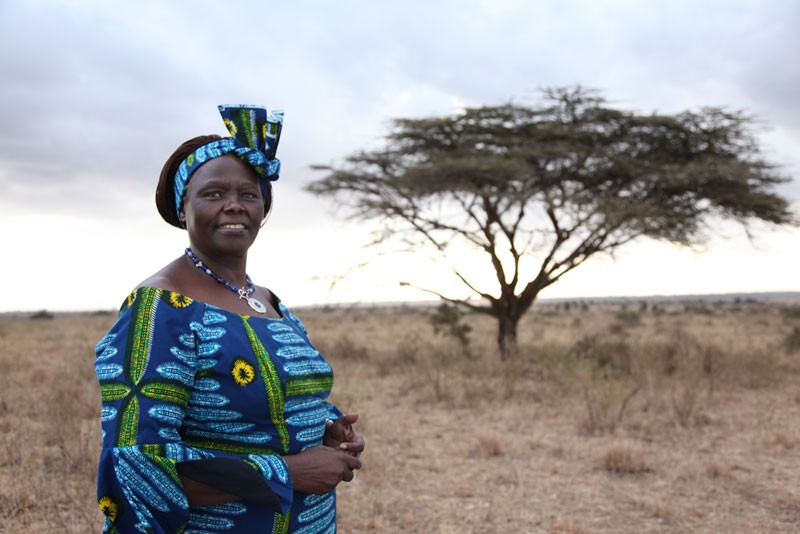The Nobel Peace Prize was started in 1901 by Alfred Nobel and is awarded every year to those who has “done the most or the best work for fraternity between nations, for the abolition or reduction of standing armies and for the holding and promotion of peace congresses”.
In the case of Wangari Maathai, the Nobel Committee commented: “She thinks globally and acts locally.”
“I think what the Nobel committee is doing is going beyond war and looking at what humanity can do to prevent war. Sustainable management of our natural resources will promote peace.” -Professor Wangari Maathai (BrainyQuote, 2014)
Prize Motivation:
“For her contribution to sustainable development, democracy and peace.”
Nobel Peace Prize- Wangari Maathai Video
(Nobelprize.org, 2014)
Below shows the highlights of Wangari Maathai’s Nobel Lecture/ script:
“As the first African woman to receive this prize, I accept it on behalf of the people of Kenya and Africa, and indeed the world. I am especially mindful of women and the girl child. I hope it will encourage them to raise their voices and take more space for leadership. I know the honour also gives a deep sense of pride to our men, both old and young. As a mother, I appreciate the inspiration this brings to the youth and urge them to use it to pursue their dreams.”
“I know that African people everywhere are encouraged by this news. My fellow Africans, as we embrace this recognition, let us use it to intensify our commitment to our people, to reduce conflicts and poverty and thereby improve their quality of life. Let us embrace democratic governance, protect human rights and protect our environment. I am confident that we shall rise to the occasion. I have always believed that solutions to most of our problems must come from us.”
“The women we worked with recounted that unlike in the past, they were unable to meet their basic needs. This was due to the degradation of their immediate environment as well as the introduction of commercial farming, which replaced the growing of household food crops. But international trade controlled the price of the exports from these small-scale farmers and a reasonable and just income could not be guaranteed. I came to understand that when the environment is destroyed, plundered or mismanaged, we undermine our quality of life and that of future generations.”
“Entire communities also come to understand that while it is necessary to hold their governments accountable, it is equally important that in their own relationships with each other, they exemplify the leadership values they wish to see in their own leaders, namely justice, integrity and trust.”
“The Norwegian Nobel Committee has challenged the world to broaden the understanding of peace: there can be no peace without equitable development; and there can be no development without sustainable management of the environment in a democratic and peaceful space. This shift is an idea whose time has come.”
“The extreme global inequities and prevailing consumption patterns continue at the expense of the environment and peaceful co-existence. The choice is ours.”
“Today, over 50 years later, the stream has dried up, women walk long distances for water, which is not always clean, and children will never know what they have lost. The challenge is to restore the home of the tadpoles and give back to our children a world of beauty and wonder.”
